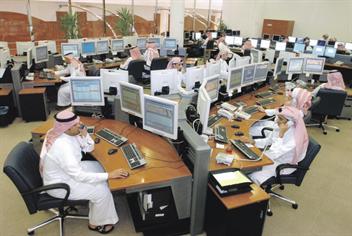Egypt’s relations with the International Finance Corporation (IFC) and the European Bank for Reconstruction and Development (EBRD) are strategic, according to Minister of International Cooperation Sahar Nasr. She denied the rumours about them stopping their projects in the local market in Egypt, stressing that their portfolio cooperation with Egypt has doubled over the past period.
She explained that while she is heading the Egyptian delegation in the annual meetings of the World Bank in October, she will also be meeting leaders of the IFC in order to look into expanding the level of cooperation. She noted that the volume of established investments has reached $1.5bn.
Regional director of the IFC Mouayed Makhlouf said that throughout 2015 investments worth $352m were established in Egypt, including seven projects in the sectors of banking and healthcare.
Adviser of regional communications for the southern and eastern Mediterranean at the EBRD, Nibal Zgheib, has stressed that the bank continues to undertake its operations in Egypt normally in the fields of energy support, resource efficiency, and governance strengthening.
The IFC, a member of the World Bank Group, has invested more than $1.3bn in the Middle East and North Africa in the last fiscal year (FY) 2015/16, according to a statement released by the group on Wednesday.
The IFC said it offered those investments owing to its confidence in the ability of the private sector to create jobs, improve infrastructure, and stimulate economic growth in the Middle East and North Africa—from Morocco to Afghanistan.
During the last fiscal year, the IFC has tried to address the main obstacles facing development in the region, through investment and consultancy projects.
The IFC was committed to providing $1.3bn in the Middle East and North Africa, of which $331m was collected from other investors.
The corporation also launched 20 new projects to provide consultancy services for governments and private sector companies in terms of regulatory reform, corporate governance, and the settlement of commercial disputes.
Makhlouf said that it was a challenging year for many countries in the region on the political and economic levels. However, the Middle East has huge potential and can benefit from creativity of the private sector to create new jobs, support infrastructure, and achieve sustainable growth in the region.
During the last fiscal year, the IFC worked on supporting women, promoting gender equality, supporting countries affected by conflict, and improving infrastructure. It also focused on providing required energy supplies, controlling climate change, and offering finance to SMEs.
The IFC offered loans worth $375m to finance Mass Global Energy Suleimanya, which will provide electricity to three million people in the Kurdistan region of Iraq.
The corporation also offered loans worth $74m to Fotowatio Renewable Ventures (FRV) in Jordan, to build a solar power plant north of Amman with a production capacity of 50 MW.
It also helped SMEs to obtain financing, as these companies are considered the main accelerators of economic development in the region.
The IFC offered a loan worth $100m to the Arab African International Bank in Egypt, and another loan worth $75m to the National Bank of Kuwait in Egypt, to provide more loans to SMEs.
The IFC invested $10m in Afghanistan International Bank, which contributed to increasing the scope of SMEs which obtain financing. It also provided a loan to the Lebanese Al-Majmoua, which helped it to provide funding for micro-entrepreneurs, especially women in rural areas.
In the next fiscal year, the IFC plans to maintain its strategic focus on the areas with the most development needs, such as renewable energy projects, promote chances to obtain financing, and develop the skills of Arab youth.



